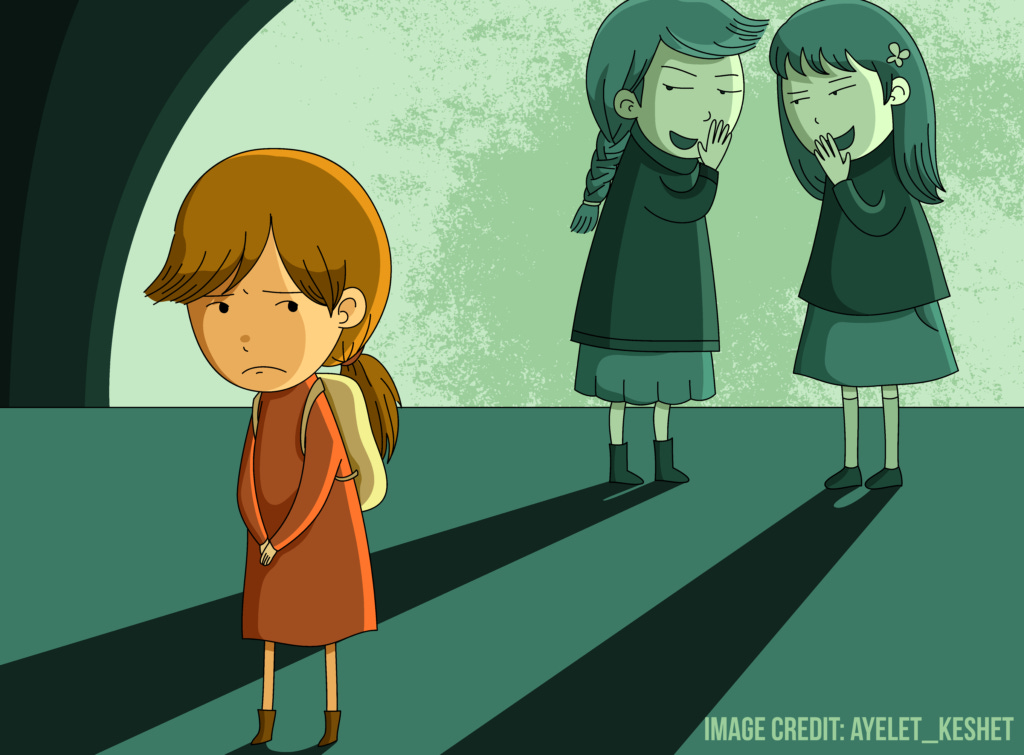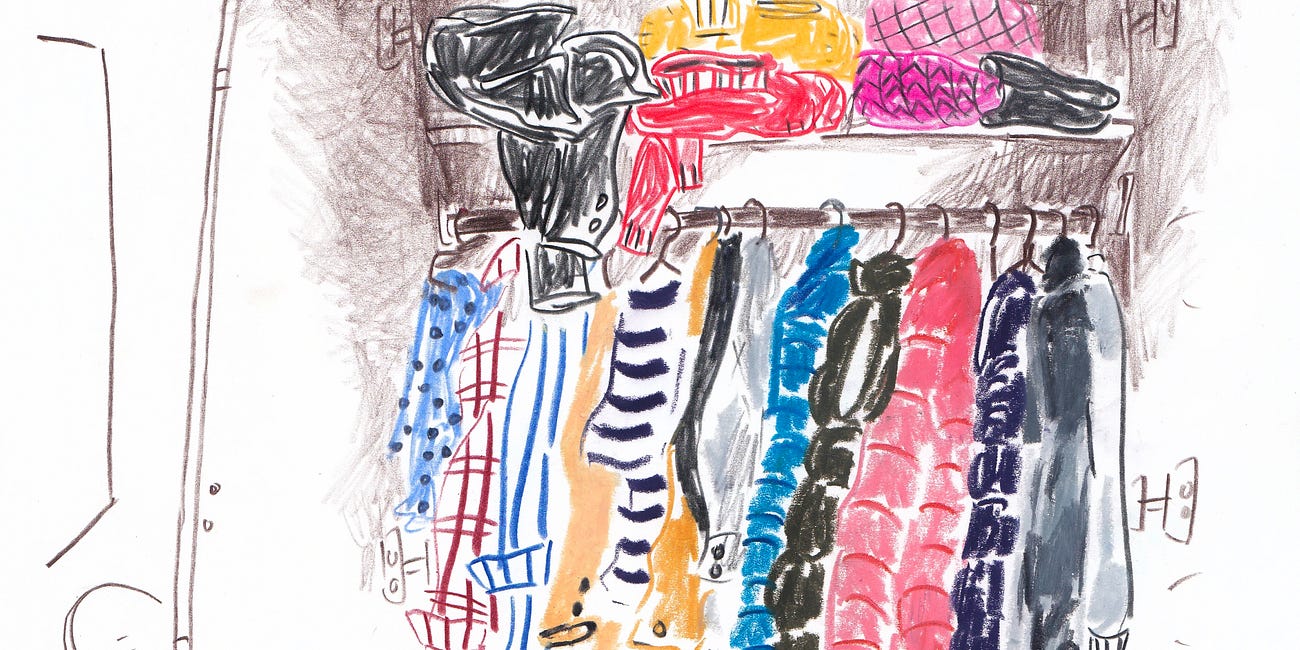This post is a chapter of the book It Ain’t Gonna Lick Itself: Creating and Maintaining Living Spaces That Make Your Life Better (In Spite Of Everything) by Hanne Blank Boyd.
Click here for the full table of contents.
Virtually everyone I’ve ever spoken to about household labor and living space work has at some point brought up feelings of shame. At various times, in various situations, I have also felt shame in regard to my home and my housekeeping… or lack thereof.
Shame feels absofuckinglutely awful. You know this as well as I do, because we’ve all felt it. What’s more, shame is slippery, and not in a nice way.
Unlike guilt, which tends to be a feeling we have about either acting wrongly or failing to act when we know we should, shame tends to be a feeling we have about who and what we actually are. It’s a sense that on some essential level we are broken, flawed, undeserving, unworthy.
We may think that we feel shame because the kitchen counters are so cluttered and dirty: “I really should’ve cleaned those yesterday when I said I would, I feel bad that I didn’t, they need it and things will be more pleasant in here once it’s done.” But in reality, when it’s shame we’re feeling, the internal conversation often sounds a lot more like “ugh the counters look so horrible, I’m such a fuckup, what kind of garbage human being lets their kitchen counters get so disgusting?”
These two things are not the same. (Perhaps you noticed?)
One is about an action. Done or undone, it’s the action that matters.
The other is about the worth of a human being. The action or lack thereof just a stray brick that happened to be lying around and got snatched up and thrown at a person’s head, weaponized.
I hope that we can all agree that a human being remains valuable and worthwhile regardless of the status of their living space and indeed regardless of their ability or even their willingness to engage with it in any way that even approaches cleaning, organizing, or maintenance. We’d better be able to, since every single one of us passes through stages in our lives where that is true of us, and none of us make it to adulthood without spending a significant amount of time in that state.
When it comes to the work of making our lives go, shame is the ultimate dog that won’t hunt. Shame serves no purpose except emotional manipulation and more specifically psychological punishment. This is why shaming and its relatives, like shunning and ostracism, are used by cultures everywhere to punish people who have transgressed against major taboos. (You’d think it’d be used more often to punish those who have transgressed against the human dignity of other people, but it isn’t. Perhaps this is because shaming itself is a violation of human dignity, which is why it’s so powerful.)
Shame does not merely suggest but clearly states that the person who is being shamed does not qualify to be considered fully human. Shame says you are unacceptable among us, you are cast out, excluded, unprotected. It’s an existential threat. Desperation and panic are not disproportionate reactions.
Let me be as clear as I can be here: it’s not entropy that says this. Entropy cannot say this. Entropy is a force of nature and doesn’t speak, nor does it have any cognizance of human beings or their humanity, their needs or reactions or emotions or suffering. Shame is social. Shame is something human beings impose on one another, and something human beings get taught to impose on themselves for the sake of controlling behavior and enforcing hierarchies: think about who benefits and how when, for example, victims of sexual violence are shamed because they have been victimized.
The clutter and dirt on your kitchen counters are not shaming you. They can’t. They are inanimate, not human, and do not speak. They are bits of matter that are either in a place that we want them in or not; as pioneering anthropologist Mary Douglas wrote, “dirt is matter out of place.” One location is not more moral than the other. One is more desirable to us and the other less. One produces effects that we tend to find neutral or positive, the other negative or distressing. Disorder and chaos aren’t evil, though. Humans don’t thrive on them, it’s true. They can and do cause us harm. But disorder and chaos do not intend to harm: they can’t intend anything at all.
Most of the time, when we do not impose order on our surroundings, we similarly don’t have harmful intent. We may be neglectful. We may quite rightly and reasonably feel guilty either about acting wrongly or failing to act rightly. But action can be counteracted. Amends can be made and repairs can be done. Is it preferable not to be the cause of a need for repair in the first place? Sure. We can strive for that. But shit happens, we make mistakes, we are sometimes thoughtless or lazy. And entropy always, but always, takes its cut. Inevitably we will at some point fail to do the right thing.
When that happens, action is the only thing that helps. Action can counteract both action and inaction. Shame does precisely fuck all about either one. Shame repairs nothing. Shame wounds and paralyzes, isolates and terrifies. None of that gets your business handled. The only thing shame handles is you, in a way that is unhelpful, gratuitous, and honestly pretty fucking cruel.
We can choose to resist the impulse toward shame just like we can choose to resist the impulse toward any other unkindness or violence. Instead, we can acknowledge that action and inaction both have effects. I like the scientific term sequelae, things that follow as a result of something, because it’s both accurate and neutral. We can accept that sometimes we make crap choices about how to act or we fail to act at all -- and a failure to act is sometimes also a choice -- and that the sequelae are not good. When it’s justified, we can and should acknowledge that we chose poorly, that we didn’t act or that we did act but our action wasn’t a good one or that we acted without enough thought or information or consent. Sometimes we simply have to acknowledge that we chose the best action we could under the circumstances and --for whatever reasons-- it backfired. Taking accountability for our actions is important for a lot of reasons, not least of which is that it’s a damn fine teacher.
The misery and pain and fear of shame makes it grotesquely more difficult to act, including the difficult but powerful and productive action of being accountable. Shame paralyzes that powerful, productive potential, holding hostage everything it has to offer you and the world, burying it under a giant pile of steaming shit and vomit and acid and nuclear waste that quite reasonably sends us into a panicked and desperate tailspin.
Disorder comes to everyone and every place, without exception. Entropy takes its cut. There is no shame in that. No, not even if one look at your kitchen counters makes you want to cry or possibly just set the whole place on fire accidentally on purpose or maybe vanish in the middle of the night with no forwarding address. Those are all actions you could take in response to your kitchen counters, it’s true. There are many others also.
You have choices to make and actions to take. If the actions you choose don’t get things handled to your satisfaction, you can take other ones until you find ones that do. You must choose how to proceed. Choose shamelessly.
Want to apply some It Ain’t Gonna Lick Itself energy to your own household? Join me for the March or April It Ain’t Gonna Lick Itself intensives — Wardrobe & Kitchen!
It Ain't Gonna Lick Itself: Wardrobe & Kitchen Intensives
It Ain’t Gonna Lick Itself: Wardrobe & Kitchen Intensives
It Ain’t Gonna Lick Itself is ©2024 by Hanne Blank Boyd. All Rights Reserved.
If you happen to be reading this post and are not a paid subscriber to Reasons Not To Quit, subscribe.









I can so relate to feeling shamed. I was carefully and thoroughly taught to believe that I was an obscenity and a monstrosity because I survived childhood sexual abuse from my father’s best friend. Even as late at 2002 in my 40’s, family members would remind me of my worthlessness. Because my grandmother actually saw “me” and gave me unconditional love, I knew that my family was wrong about me. I have learned to accept my past because it has formed me into the person I am today and I know I am fucking great!!!! I know I am perfectly imperfect!!! I am grateful to my trauma coach with whose guidance I have recently felt some very deep healing occur. I also know how shame can paralyze action. I practice giving myself grace as I give to others. Thank you again for sharing your wisdom with me. You do inspire me to take action and continue to learn.